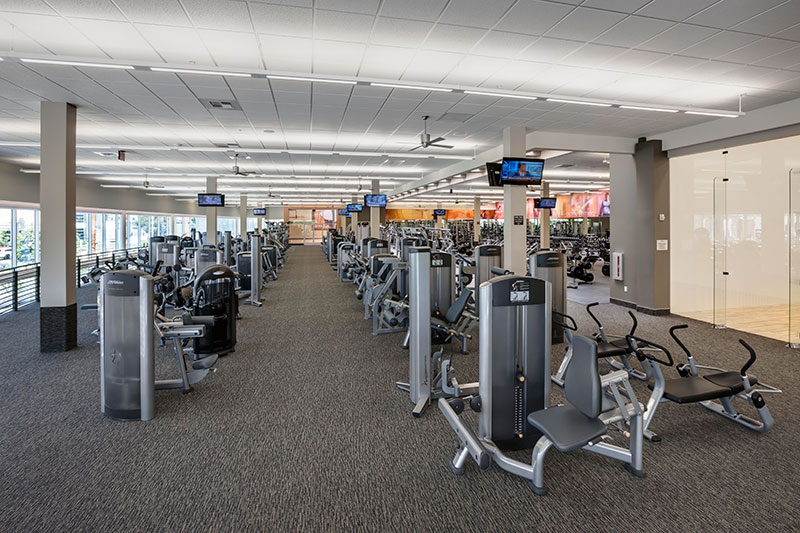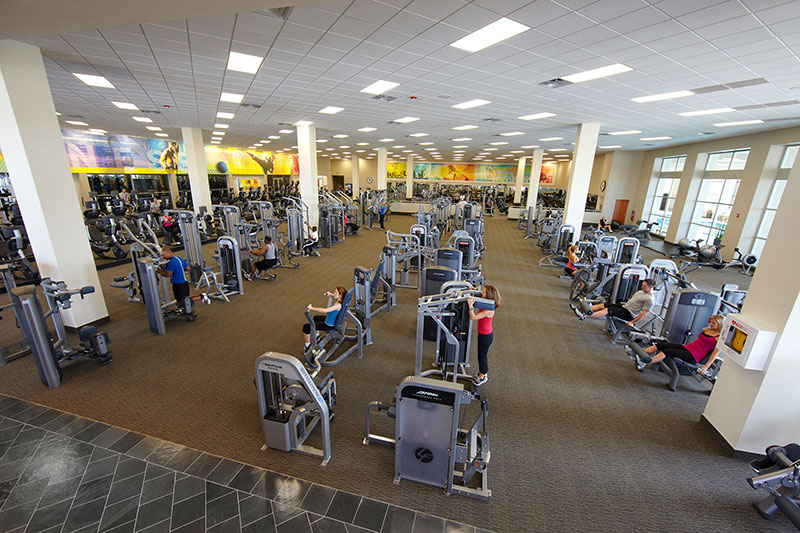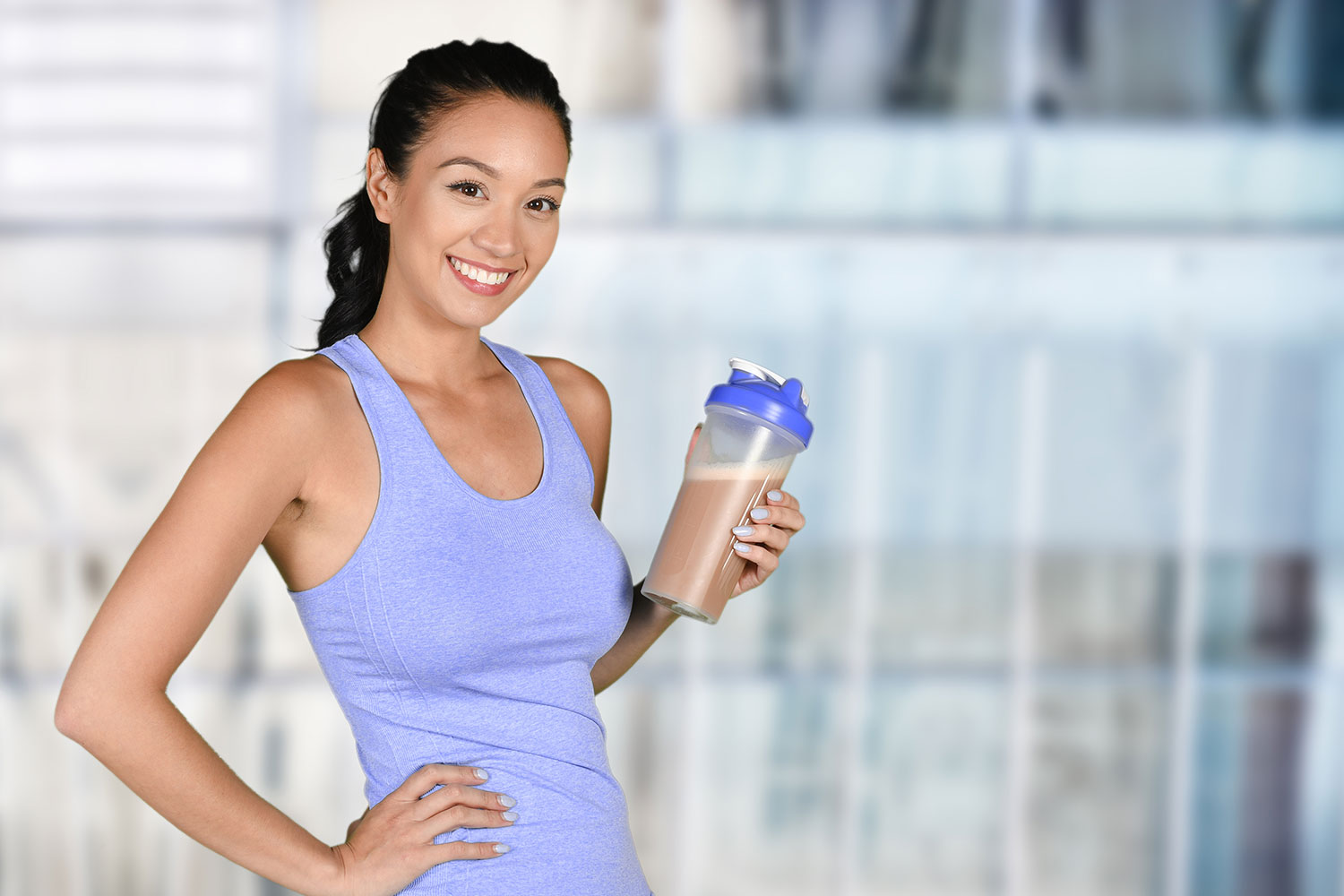Why am I Gaining Weight Despite Diet and Exercise? │ QA
If you’re careful with your nutrition, working out weekly, and still experiencing problems with your weight, take a moment to read this QA.


What’s the best way to calculate calories?
– Jonatan A.


If you are strictly speaking of counting calories consumed, then the gold standard for calorie values is the USDA National Nutrient Database for Standard Reference. The most current is Release 28 from August 2017. Using this resource, calculating individual foods yourself is laborious. Meet diet analysis software! As long as the program or website you are using has a comprehensive database (over 20,000 foods) and common portions, you should be able to enter a day’s worth of intake in under an hour. The more detailed and specific you are in recording what you ate, the more accurate the report will be. There are several consumer-friendly versions of software used by dietary professionals. My favorite software for purchase is Nutribase Personal Plus or FoodWorks, and online www.Nutrihand.com or www.FitDay.com for free.
– Debbie J., MS, RD
This article should not replace any exercise program or restrictions, any dietary supplements or restrictions, or any other medical recommendations from your primary care physician. Before starting any exercise program or diet, make sure it is approved by your doctor.
Some questions have been edited for length and/or clarity.
 Have a nutrition question? Our registered dietitian is ready to help!
Have a nutrition question? Our registered dietitian is ready to help!
Email nutrition@lafitness.com or submit your question below and it may be featured in an upcoming article!
If you’re careful with your nutrition, working out weekly, and still experiencing problems with your weight, take a moment to read this QA.
Blood sugar control isn’t easy. These are Debbie’s top recommendations for how to address weight control with Type II Diabetes.
Does Intermittent Fasting give you enough time to pack the day's protein? Our registered dietitian helps clear up the confusion!


What’s the correct way of calculating body fat percentage and lean mass?
– Garima

The previous gold standard for body composition analysis has been hydrostatic weighing. Short of a university research lab, you may have trouble locating such a dunk tank. A dual energy x-ray absorptiometry (DEXA) scan is a higher tech method available in medical care settings, since they primarily use them for bone density status. A Bod Pod device provides reliable results, though it’s difficult to find one of these space-age egg-shaped chambers. In general, these methods basically use the difference in density of body tissues to determine how much of each you have. They also carry a price tag.
So what does that leave for you that’s readily available? Skinfold thickness testing using digital calipers may be an option if there is a trained individual performing the measurements with good equipment. It determines subcutaneous fat to predict overall body fat. The best simple, fast and inexpensive method is an electronic bioelectrical impedance analysis (BIA) scale with integrated upper body measurement. Such segmental devices get an overall picture by looking at hydration status of all 4 quadrants & torso of the body. As if a step-on BIA scale and a hand held analyzer had an offspring. The small electrical signal passes through muscle and fat differently based on their water content.
You don’t have to calculate body fat % or lean mass as the above methods have equations built into the software. In the case of skinfold thickness with traditional calipers, the most accurate formula uses six or more body measurements whose sum is usually available in a table format for conversion into body fat.
– Debbie J., MS, RD
This article should not replace any exercise program or restrictions, any dietary supplements or restrictions, or any other medical recommendations from your primary care physician. Before starting any exercise program or diet, make sure it is approved by your doctor.
Some questions have been edited for length and/or clarity.
 Have a nutrition question? Our registered dietitian is ready to help!
Have a nutrition question? Our registered dietitian is ready to help!
Email nutrition@lafitness.com or submit your question below and it may be featured in an upcoming article!
If you’re careful with your nutrition, working out weekly, and still experiencing problems with your weight, take a moment to read this QA.
Blood sugar control isn’t easy. These are Debbie’s top recommendations for how to address weight control with Type II Diabetes.
Does Intermittent Fasting give you enough time to pack the day's protein? Our registered dietitian helps clear up the confusion!


I’m trying to lose weight. I have been going to the gym about 5 times a week for about 4 months. I feel like I’m getting stronger, I have more energy and generally feel better. I noticed that I haven’t lost any weight and figured I should check my diet. Can you point me in the right direction?
– Jesse

First, keep in mind that muscle is denser than fat, so it weighs more. Getting more tone or noticing looser pants, but still seeing the same number on the scale could mean a gain in lean muscle plus fat loss. Hurray! Embrace your success in getting healthier.
If you still suspect your diet has problems, you probably know the reason why better than I’d guess. Common culprits that prevent weight loss are caloric beverages (especially alcohol, smoothies and gourmet coffee drinks), large portions and skipping meals. Here is a 10-point checklist of suggestions to help you identify where you might improve:
– Debbie J., MS, RD
This article should not replace any exercise program or restrictions, any dietary supplements or restrictions, or any other medical recommendations from your primary care physician. Before starting any exercise program or diet, make sure it is approved by your doctor.
Some questions have been edited for length and/or clarity.
 Have a nutrition question? Our registered dietitian is ready to help!
Have a nutrition question? Our registered dietitian is ready to help!
Email nutrition@lafitness.com or submit your question below and it may be featured in an upcoming article!
If you’re careful with your nutrition, working out weekly, and still experiencing problems with your weight, take a moment to read this QA.
Blood sugar control isn’t easy. These are Debbie’s top recommendations for how to address weight control with Type II Diabetes.
Does Intermittent Fasting give you enough time to pack the day's protein? Our registered dietitian helps clear up the confusion!


I cannot lose fat despite exercising 4x a week which is cardio and lifting. I’m not sedentary either except at work sitting 8 hours. I overdose on veggies and eat very high fiber and lean. Hardly any bread/starch. I am 51, 6″2, somewhat muscular, but 225 lbs. I should be 210-215 as I was 5 years ago. I can’t get there.
– Gordon K.

My guess is that perhaps your body is adapted to maintaining at your current intake and exercise level. Often after increasing activity, people experience a subtle increase in appetite which causes compensatory intake. In other words, calories consumed go up. Usually in healthy vegetable-based diets this could be in nuts/seeds, pesto, avocado, dressings, dried fruits or beverages. It only takes about 100 calories per day to forestall a weight loss of 10 lbs. in a year.
Try altering your workouts by increasing time, duration or intensity. To find hidden calories, I’d suggest tracking your intake for a few days and using dietary software with a comprehensive database for analysis. It might reveal where you have room to improve. Don’t forget that proper hydration and adequate sleep are also key to successful weight loss.
– Debbie J., MS, RD
This article should not replace any exercise program or restrictions, any dietary supplements or restrictions, or any other medical recommendations from your primary care physician. Before starting any exercise program or diet, make sure it is approved by your doctor.
Some questions have been edited for length and/or clarity.
 Have a nutrition question? Our registered dietitian is ready to help!
Have a nutrition question? Our registered dietitian is ready to help!
Email nutrition@lafitness.com or submit your question below and it may be featured in an upcoming article!
If you’re careful with your nutrition, working out weekly, and still experiencing problems with your weight, take a moment to read this QA.
Blood sugar control isn’t easy. These are Debbie’s top recommendations for how to address weight control with Type II Diabetes.
Does Intermittent Fasting give you enough time to pack the day's protein? Our registered dietitian helps clear up the confusion!


Do you recommend taking a protein drink after working out or before? I’m also taking creatine with my protein shake. Should I take creatine before work out or after? I am a woman body builder 62 years old.
– Yvonne B.


You are right to take your protein and creatine supplement in close timing of your workout for the most benefit. This is because of increased blood flow and therefore increased transport of amino acids and creatine to skeletal muscle1. There is a window of opportunity surrounding a workout for maximum impact of nutrients, but the overall intake during the day also matters.
The International Society of Sports Nutrition’s position stand on protein and exercise2 in 2007 mentions that the timing of protein ingestion should be before, during and after exercise. Their latest 2017 position stand on creatine did not mention timing of supplementation, only daily dose.
Protein consumed during recovery helps recovery. The Academy of Nutrition and Dietetics’ Evidence Analysis Library for Athletic Performance Nutrition3 from 2014 summarized that “Ingesting protein during the recovery period (post-exercise) led to accelerated recovery of static force and dynamic power production during the delayed onset muscle soreness (DOMS) period and more repetitions performed subsequent to intense resistance training.” The International Sports Sciences Association website’s article Nutrient Timing for Bigger Muscle4 indicates protein timing depends on previous meals. Protein shakes are suitable before training in lieu of a recent meal, and protein can be consumed right after a workout to boost gains within an anabolic window of 3-4 hours.
Specifically looking at creatine, a small 2013 study examining the timing of creatine use among recreational male bodybuilders over a month-long period suggested that creatine monohydrate is more effective immediately post-workout5.
As you have no doubt found, depending on the body building source, recommendations for protein and creatine timing vary. I’d say it depends on when you are exercising and when your meals are. Fill in the gaps so that you are consuming protein every 3-4 hours.
– Debbie J., MS, RD

Sources
This article should not replace any exercise program or restrictions, any dietary supplements or restrictions, or any other medical recommendations from your primary care physician. Before starting any exercise program or diet, make sure it is approved by your doctor.
Some questions have been edited for length and/or clarity.
 Have a nutrition question? Our registered dietitian is ready to help!
Have a nutrition question? Our registered dietitian is ready to help!
Email nutrition@lafitness.com or submit your question below and it may be featured in an upcoming article!
If you’re careful with your nutrition, working out weekly, and still experiencing problems with your weight, take a moment to read this QA.
Blood sugar control isn’t easy. These are Debbie’s top recommendations for how to address weight control with Type II Diabetes.
Does Intermittent Fasting give you enough time to pack the day's protein? Our registered dietitian helps clear up the confusion!
Be the first to know about exclusive
content, deals and promotions